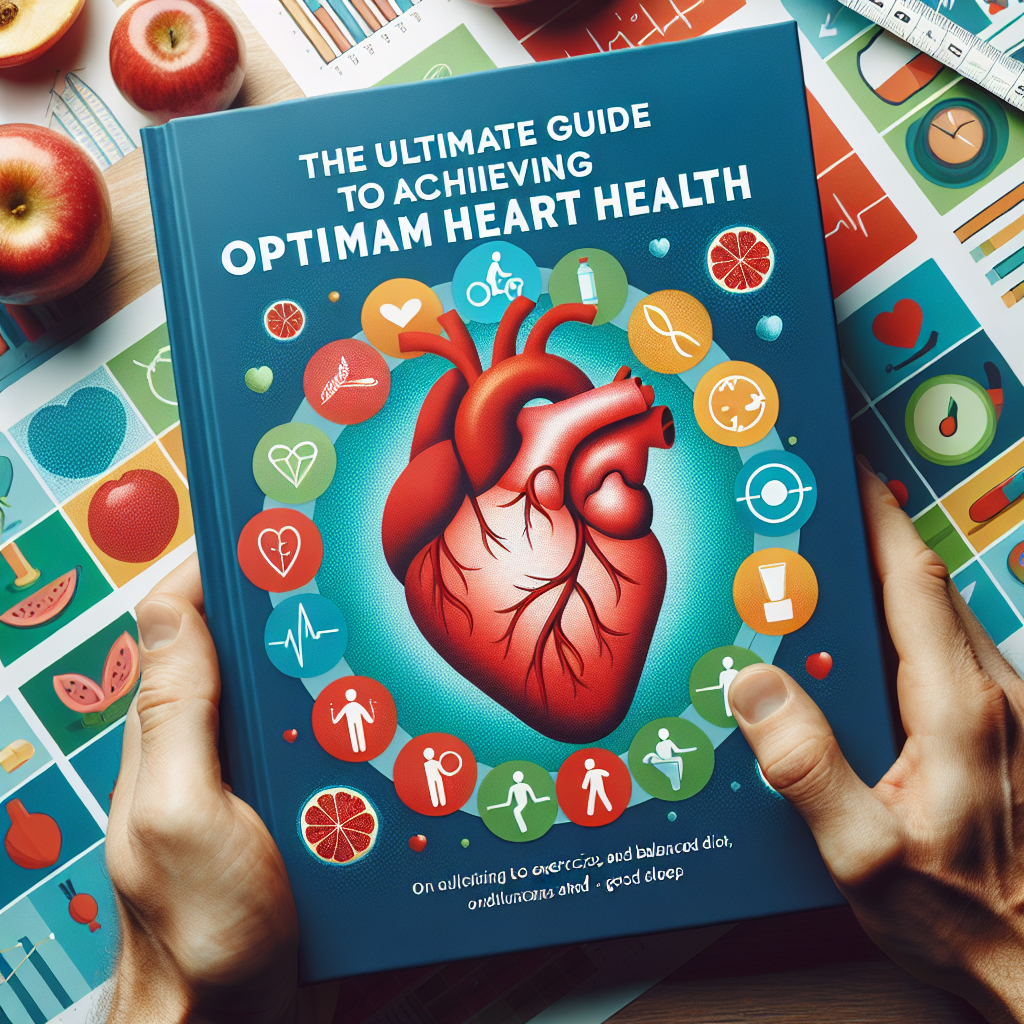The Ultimate Guide to Achieving Optimum Heart Health

Posted on: Monday, March 11th, 2024
Heart health is a critical aspect of overall well-being, affecting millions worldwide. This comprehensive guide explores the latest in cardiovascular research and practical steps you can take to maintain or improve your heart's condition. From understanding the fundamental aspects of a heart-healthy lifestyle to recognizing the signs of heart-related issues early, we cover essential ground. Our approach synthesizes current studies and advice from leading health experts to provide you with an authoritative source on heart health.
1. **Prioritize Regular Physical Activity**: Engaging in at least 30 minutes of moderate to intense exercise most days of the week can significantly improve heart function and overall cardiovascular health. Recent studies indicate that a mix of aerobic exercises, such as walking or cycling, combined with strength training, yields the best results for heart health.
2. **Adopt a Heart-Healthy Diet**: Consuming a diet rich in fruits, vegetables, whole grains, lean protein, and healthy fats can reduce the risk of heart disease. The Mediterranean diet, highlighted in numerous studies for its cardiovascular benefits, emphasizes these food groups and is associated with lower rates of heart disease.
3. **Maintain a Healthy Weight**: Being overweight or obese increases the risk of heart disease. Weight loss, achieved through a combination of diet and exercise, has been shown to improve heart health by reducing blood pressure, cholesterol levels, and the risk of diabetes.
4. **Monitor Your Blood Pressure**: High blood pressure is a major risk factor for heart disease. Regular monitoring can help you take early action to control it. Lifestyle changes and medication (if prescribed) can effectively manage high blood pressure.
5. **Keep Cholesterol and Triglyceride Levels Under Control**: High levels of cholesterol and triglycerides can clog arteries and increase heart disease risk. Eating a healthy diet, exercising, and sometimes taking medications can help lower these levels and protect your heart.
6. **Limit Alcohol and Avoid Smoking**: Excessive alcohol intake and smoking dramatically increase the risk of heart disease. Quitting smoking and limiting alcohol consumption can significantly benefit heart health, improving cardiovascular function and longevity.
7. **Manage Stress**: Chronic stress has been linked to heart disease. Techniques such as meditation, deep breathing exercises, and yoga can help manage stress levels, reducing the strain on your heart.
8. **Regular Health Screenings**: Early detection and treatment of cardiovascular conditions can prevent complications. Regular check-ups, including cholesterol levels, blood pressure, and diabetes screening, are essential.
9. **Stay Informed**: Keep up with the latest cardiovascular research and health guidelines. Knowledge about heart health evolves, and staying informed enables you to adjust your lifestyle and health practices accordingly.
10. **Consult Healthcare Professionals**: Regular consultations with healthcare professionals are crucial for maintaining heart health. They can provide personalized advice based on your health status, risk factors, and latest research findings.
Empowering yourself with knowledge and taking proactive steps towards heart health can lead to significant improvements in your quality of life. This guide combines the latest cardiovascular research with practical advice, offering a roadmap to a healthier heart and a fuller, more vibrant life.